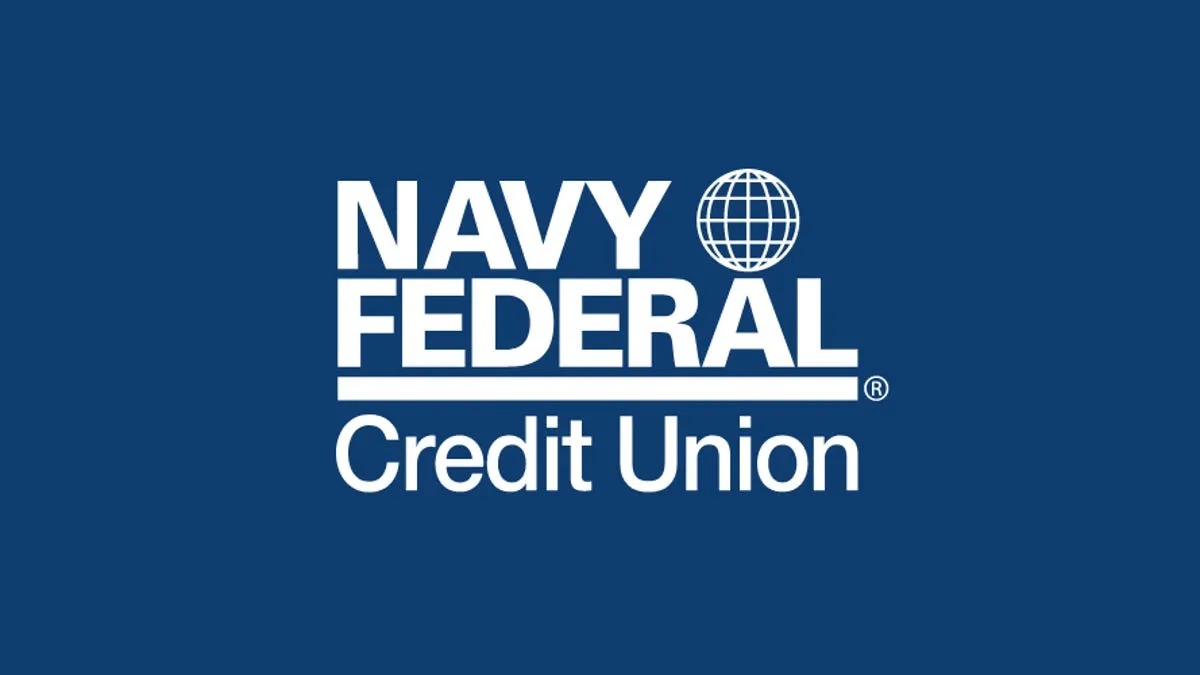

Finance
Where Does Navy Federal Pull Credit From
Published: January 6, 2024
Get insights into where Navy Federal pulls credit from and how it may impact your finance options. Explore the credit pulling process for better financial decisions.
(Many of the links in this article redirect to a specific reviewed product. Your purchase of these products through affiliate links helps to generate commission for LiveWell, at no extra cost. Learn more)
Table of Contents
Introduction
Welcome to the world of Navy Federal Credit Union! If you’re considering joining this renowned financial institution or already have an account with them, you may have wondered where Navy Federal pulls credit from. Understanding this process can help you make informed decisions about your financial activities and ensure that you maintain a healthy credit profile.
Navy Federal Credit Union, often referred to as Navy Federal, is one of the largest credit unions in the United States. It was founded in 1933 with the mission of providing financial services exclusively to members of the military and their families. Over the years, Navy Federal has expanded its membership eligibility to include Department of Defense civilians and contractors, providing a wide range of banking products and services tailored to the unique needs of its members.
As a financial institution, Navy Federal has the need to assess an individual’s creditworthiness when they apply for loans or credit cards. This is done through a process known as credit pulls, which involves accessing an individual’s credit report from one or more credit bureaus to evaluate their credit history and risk.
It’s important to note that credit pulls can affect your credit score, which is a numerical representation of your creditworthiness. Therefore, understanding where Navy Federal pulls credit from and how it impacts your credit score is crucial for managing your financial health.
In the following sections, we will explore the sources from which Navy Federal pulls credit, the factors that can affect credit pulls, and how credit pulls can impact your credit score. We will also provide you with valuable tips for managing credit pulls effectively. So, let’s dive in and unravel the mysteries of Navy Federal’s credit pulling practices!
Overview of Navy Federal Credit Union
Navy Federal Credit Union, often referred to as Navy Federal, is a not-for-profit financial cooperative serving members of the military, their families, and select civilian employees of the U.S. Department of Defense. With over 9 million members and assets surpassing $130 billion, it is the largest credit union in the United States.
Established in 1933, Navy Federal has been dedicated to providing exceptional financial services to its members for nearly a century. The credit union offers a wide range of banking products and services, including savings and checking accounts, loans, credit cards, mortgages, and investment options.
One of the primary advantages of being a member of Navy Federal is its commitment to serving the unique needs of its members within the military community. Members benefit from tailored financing options, military-specific benefits, and personalized customer service. Navy Federal understands the challenges faced by its members and aims to offer financial solutions that can help them achieve their goals.
With a vast network of branches, ATMs, and online and mobile banking capabilities, Navy Federal makes it convenient for members to access their accounts and manage their finances anytime, anywhere. The credit union also provides educational resources, financial counseling, and tools to help members make informed financial decisions and build a solid foundation for their future.
In addition to its dedication to its members, Navy Federal is also known for its involvement in charitable initiatives and community support. The credit union regularly contributes to organizations and programs that benefit the military community, such as scholarships for military dependents and veterans’ assistance programs.
Overall, Navy Federal Credit Union offers a comprehensive range of financial services and benefits specifically designed to meet the needs of its members in the military community. With its long-standing reputation for exceptional customer service and commitment to its members’ financial well-being, Navy Federal continues to be a trusted and respected institution within the financial industry.
Understanding Credit Pulls
When you apply for credit, whether it’s a loan, credit card, or mortgage, the lender needs to assess your creditworthiness. This is where credit pulls come into play. A credit pull, also known as a credit inquiry, is a process that allows lenders to access your credit report from one or more credit bureaus to evaluate your credit history and determine your level of risk as a borrower.
There are two main types of credit pulls: hard inquiries and soft inquiries. A hard inquiry occurs when you apply for new credit, such as a loan or credit card. It is initiated by you, the borrower, and is recorded on your credit report. Hard inquiries can slightly impact your credit score and typically stay on your credit report for up to two years.
On the other hand, soft inquiries are credit pulls that do not occur as a result of applying for new credit. These inquiries are usually made by lenders for non-credit-related purposes, such as pre-approved offers or background checks. Soft inquiries do not affect your credit score and are not visible to other lenders when they review your credit report.
It’s important to note that each credit bureau maintains its own credit report for individuals, and lenders can choose to pull credit from one or multiple bureaus. The three main credit bureaus in the United States are Equifax, Experian, and TransUnion. When Navy Federal pulls credit, they may choose to obtain reports from one or more of these bureaus to assess your creditworthiness.
Understanding credit pulls is essential because they can have an impact on your credit score. Hard inquiries, in particular, can slightly lower your score, especially if you have multiple inquiries within a short period of time. This is because lenders may perceive multiple recent credit inquiries as a sign of financial instability or overreliance on credit.
However, it’s also important to remember that credit pulls are just one factor that lenders consider when evaluating your creditworthiness. They also take into account your credit history, payment behavior, debt-to-income ratio, and other relevant factors. So, while credit pulls are a part of the lending process, they are not the sole determining factor in whether you will be approved for credit.
In the next sections, we will delve into where Navy Federal pulls credit from and important factors that can influence credit pulls. Understanding these aspects will help you navigate the credit application process and make informed decisions about your financial activities.
Sources of Credit Pulls for Navy Federal
When it comes to pulling credit, Navy Federal primarily relies on the three major credit bureaus: Equifax, Experian, and TransUnion. These bureaus collect and maintain individual credit reports that contain information on your credit history, including your payment history, current debts, and length of credit history.
When you apply for credit with Navy Federal, they may choose to pull credit from one or more of these credit bureaus to evaluate your creditworthiness. This helps them assess the level of risk involved in extending credit to you. The decision to pull credit from one or multiple bureaus can vary depending on Navy Federal’s internal policies and the specific product or service you are applying for.
It’s important to note that while the information contained in your credit report from each bureau may be similar, there can be slight variations. This is because creditors may report to one or two bureaus but not all three. As a result, the data captured by each bureau may not be identical.
By pulling credit from multiple bureaus, Navy Federal aims to obtain a more comprehensive view of your credit history and financial behavior. This helps them make more well-informed lending decisions and assess your creditworthiness accurately.
In addition to the three major credit bureaus, Navy Federal may also consider other sources of credit information, such as alternative credit data. Alternative credit data includes non-traditional payment history, such as rent payments, utility bills, and cell phone bills. This type of data can be particularly helpful for individuals with limited credit history or those who do not have significant activity reported to the credit bureaus.
By considering a broader range of credit data, Navy Federal aims to provide opportunities for individuals who may not have traditional credit histories but are still financially responsible and capable of managing credit. This approach allows them to potentially extend credit to a wider range of members within the military community.
Overall, Navy Federal pulls credit from the major credit bureaus, Equifax, Experian, and TransUnion, to evaluate your creditworthiness. By accessing credit reports from these bureaus and potentially considering alternative credit data, Navy Federal can make more informed decisions when it comes to extending credit and providing financial services to its members.
Factors That Affect Credit Pulls
When Navy Federal pulls credit, several factors can influence the outcome. These factors play a crucial role in assessing your creditworthiness and determining whether you qualify for the credit or loan you are seeking. Here are some key factors that can affect credit pulls:
1. Credit History: Your credit history is a significant factor that lenders, including Navy Federal, consider when evaluating your creditworthiness. They will review your payment history, the length of your credit history, and any negative marks such as late payments or collections. A strong credit history with a good track record of responsible credit management is likely to result in a more favorable credit pull.
2. Credit Utilization: Credit utilization refers to the percentage of your available credit that you are currently using. Lenders prefer to see a low credit utilization ratio, typically below 30%. High credit utilization can indicate a higher level of risk and may affect the outcome of your credit pull.
3. Payment Behavior: Consistently making on-time payments is crucial for maintaining a positive credit profile. Late or missed payments can negatively impact your credit score and may result in a less favorable credit pull. Demonstrating responsible payment behavior is key to obtaining favorable loan terms and interest rates.
4. Debt-to-Income Ratio: Your debt-to-income ratio is the comparison between your monthly debt obligations and your monthly income. Lenders consider this ratio to assess your ability to handle additional debt. A lower debt-to-income ratio indicates better financial stability and may result in a more favorable credit pull.
5. Credit Inquiries: The number of recent inquiries on your credit report can impact credit pulls. Multiple credit inquiries within a short period of time can raise concerns about your creditworthiness and may result in a less favorable outcome. It’s important to be mindful of applying for new credit too frequently to avoid potential negative effects on your credit pulls.
6. Credit Mix: Lenders prefer to see a diverse mix of credit accounts on your credit report. This includes a combination of credit cards, installment loans, and mortgages. A well-managed mix of credit can contribute positively to credit pulls, as it demonstrates your ability to handle different types of credit responsibly.
It’s important to note that while these factors can influence credit pulls, the weight given to each factor may vary depending on the lender’s specific criteria and the type of credit being sought. Navy Federal takes these factors into account when evaluating creditworthiness, helping them determine the terms and conditions of the loan or credit product you are applying for.
By understanding and actively managing these factors, you can improve the likelihood of receiving favorable credit pulls and better loan terms. Regularly reviewing your credit reports, maintaining consistent payment behavior, and keeping your credit utilization low are all important steps in managing your creditworthiness and ensuring positive outcomes when Navy Federal pulls credit.
How Credit Pulls Affect Your Credit Score
When Navy Federal or any other lender pulls your credit, it can have an impact on your credit score. Understanding how credit pulls affect your credit score is essential for managing your financial health. Here are key points to consider:
1. Hard Inquiries: When you apply for new credit, a hard inquiry is generated on your credit report. Each hard inquiry can slightly lower your credit score, typically by a few points. However, the impact is generally minimal and temporary, lasting for a short period of time.
2. Multiple Inquiries: If you have multiple hard inquiries within a short time frame, such as when shopping for a loan, the impact on your credit score may be more significant. This can indicate to lenders that you are actively seeking credit, which may be seen as a higher risk. It’s important to be mindful of the number of inquiries you generate and try to limit them when possible.
3. Rate Shopping: When you are shopping for the best interest rate on a specific type of loan, such as a mortgage or auto loan, credit scoring models treat multiple inquiries within a short period of time as a single inquiry. This means that as long as the inquiries are for the same purpose, the impact on your credit score may be minimized.
4. Soft Inquiries: Soft inquiries, such as those made for pre-approved offers or background checks, do not impact your credit score. These inquiries are not initiated by you and are typically not visible to other lenders when they review your credit report.
It’s important to note that while credit pulls can have a temporary impact on your credit score, they are just one piece of the puzzle. Other factors, such as your payment history, credit utilization, and overall credit management, play more significant roles in determining your creditworthiness.
Moreover, the impact of credit pulls on your credit score gradually diminishes over time. After a few months, the impact of a hard inquiry becomes less significant. It’s important to focus on long-term credit management rather than obsessing over the short-term impact of credit pulls on your credit score.
To mitigate the impact of credit pulls on your credit score, consider the following tips:
- Be selective when applying for new credit and only apply when necessary.
- Shop around for the best rates within a focused timeframe to minimize the impact on your credit score.
- Monitor your credit reports regularly to ensure accuracy and identify any unauthorized inquiries.
- Focus on maintaining a positive payment history, keeping credit utilization low, and managing your overall credit profile responsibly.
By following these tips, you can navigate the credit application process while minimizing the potential impact on your credit score. Remember, credit pulls are just one part of your credit history, and responsible credit management will have a more significant and lasting impact on your overall creditworthiness.
Tips for Managing Credit Pulls
Managing credit pulls effectively is important for maintaining a healthy credit profile. Here are some valuable tips to help you navigate the credit application process and minimize the impact on your credit score:
- Apply for Credit Selectively: Before applying for new credit, carefully consider whether you truly need it. Applying for credit too frequently can lead to multiple hard inquiries, which may negatively impact your credit score. Be strategic in your credit applications and only apply for credit when necessary.
- Do Your Research: Take the time to research and compare different lenders and credit products before submitting an application. This can help you choose the best option for your needs and increase the likelihood of approval. Shopping around within a focused timeframe can also minimize the impact of multiple inquiries on your credit score.
- Monitor Your Credit Reports: Regularly review your credit reports from all three major credit bureaus – Equifax, Experian, and TransUnion. This allows you to check for any inaccuracies, unauthorized inquiries, or potential signs of identity theft. Promptly report any discrepancies to the credit bureaus to ensure your credit report remains accurate.
- Understand the Type of Inquiry: Differentiate between hard inquiries and soft inquiries. Hard inquiries are initiated by you when applying for new credit and can impact your credit score. Soft inquiries, on the other hand, do not affect your credit score and are typically generated for non-credit-related purposes, such as pre-approved offers. Be aware of the type of inquiry being made and its potential impact.
- Focus on Rate Shopping: When shopping for a specific type of loan, such as a mortgage or auto loan, do it within a concentrated timeframe. Credit scoring models typically treat multiple inquiries for the same purpose as a single inquiry. This means the impact on your credit score may be minimized. However, each lender’s policies may differ, so it’s best to clarify their practices beforehand.
- Build a Strong Credit Profile: Establishing a strong credit profile can reduce the impact of credit pulls on your credit score. This includes maintaining a positive payment history, keeping credit utilization low, and managing your overall credit responsibly. By demonstrating responsible credit behavior, you enhance your creditworthiness and increase your chances of favorable credit pulls.
- Consider Alternative Credit Data: If you have limited credit history or don’t have significant credit activity reported to the major credit bureaus, consider alternative credit data. Paying bills such as rent, utilities, and cell phone bills on time can help build a positive payment history that lenders like Navy Federal may consider when evaluating your creditworthiness.
- Seek Pre-Approval: Before submitting a formal application, consider seeking pre-approval from Navy Federal or other lenders. Pre-approval involves a soft inquiry that provides an indication of whether you are likely to be approved for credit. This can help you gauge your eligibility without generating a hard inquiry that may impact your credit score.
Managing credit pulls requires conscious decision-making and proactive credit management. By implementing these tips, you can navigate the credit application process more effectively, minimize the impact on your credit score, and improve your overall creditworthiness.
Conclusion
Understanding where Navy Federal pulls credit from and how it impacts your credit score is fundamental to managing your financial health. As one of the largest credit unions in the United States, Navy Federal utilizes credit pulls to assess the creditworthiness of individuals applying for loans or credit cards.
By primarily relying on the three major credit bureaus – Equifax, Experian, and TransUnion – Navy Federal obtains credit reports to evaluate an individual’s credit history, payment behavior, and risk level as a borrower. They may also consider alternative credit data to provide opportunities for those with limited credit history or non-traditional credit activities.
Credit pulls can have a temporary impact on your credit score, with hard inquiries potentially lowering your score by a few points. However, responsible credit management, a diverse credit mix, and positive payment behavior play more significant roles in determining your creditworthiness.
To manage credit pulls effectively, it is important to apply for credit selectively, monitor your credit reports for accuracy, and focus on rate shopping within a concentrated timeframe. Building a strong credit profile and considering pre-approval can also help minimize the impact of credit pulls on your credit score.
In conclusion, being informed about where Navy Federal pulls credit from and understanding the factors that affect credit pulls can empower you to make knowledgeable decisions and maintain a healthy credit profile. By managing credit pulls effectively, you can ensure that you are in the best position to access credit and secure favorable loan terms and interest rates. Remember, responsible credit management and maintaining a positive credit history are essential for your long-term financial success.














